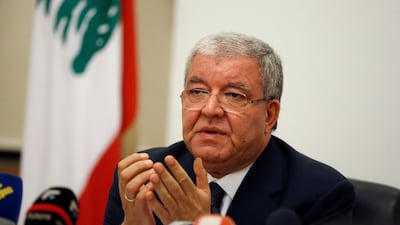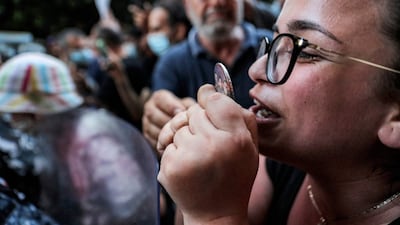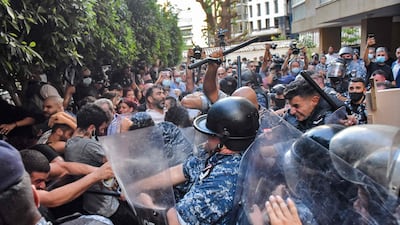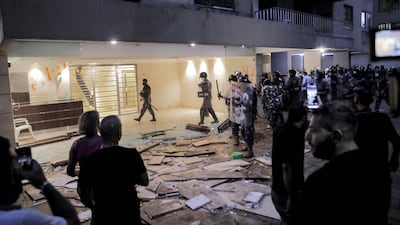Listen to the latest podcast on the Beirut blast here
Lebanon’s former interior minister has made a direct plea to the public on the eve of a parliamentary session to determine whether or not he will be liable to face prosecution over the blast at Beirut port last August.
In a spirited press conference, Nohad Machnouk presented what he says was “the only document” he received while in office pertaining to the deadly cache of ammonium nitrate that exploded on August 4 last year, killing more than 200 people.
The document, he said, concerned the Rhosus, a rubbish ship that brought the cargo to shore in 2014.
He said there was no mention of the deadly chemicals being unloaded at Beirut port, and added that when he left office more than a year before the blast, he did not know what nitrate was.
He added that the nitrate was for use in “agricultural fertilisers”.
Mr Machnouk claimed that the issue was a question for customs officials and that fingers should be pointed at those who permitted the deadly goods to be unloaded at Beirut port.
With a parliamentary session scheduled for Saturday to decide whether his immunity from prosecution will be waived, Mr Machnouk said he had been forced to appeal to the Lebanese people.
“Since the judicial investigator appealed to the public, I, too, have the right to appeal to the public,” he told reporters.
Judge Tarek Bitar, who is leading the investigation, requested permission this month to prosecute Mr Machnouk along with two other former ministers — Ali Hassan Khalil, a former finance minister, and Ghazi Zeitar, who previously served as minister of public works.
Mr Machnouk claimed that a constitutional amendment would be required for him to face prosecution.
The decision of whether or not to lift the prosecutorial immunity of several other officials indicted by Mr Bitar lies with other bodies.
As the anniversary of the port explosion approaches, a lack of justice has exasperated the Lebanese public. As Mr Machnouk assembled his press conference within the Parliament, a group of relatives of those killed in the blast gathered outside to protest.
Protests by victims' families and others affected by the explosion have grown increasingly personal in recent weeks. This month, a group attempted to storm the home of Lebanon’s caretaker interior minister Mohammed Fehmi after he refused to waive the immunity of Maj Gen Abbas Ibrahim, the head of the country’s powerful General Security apparatus.














